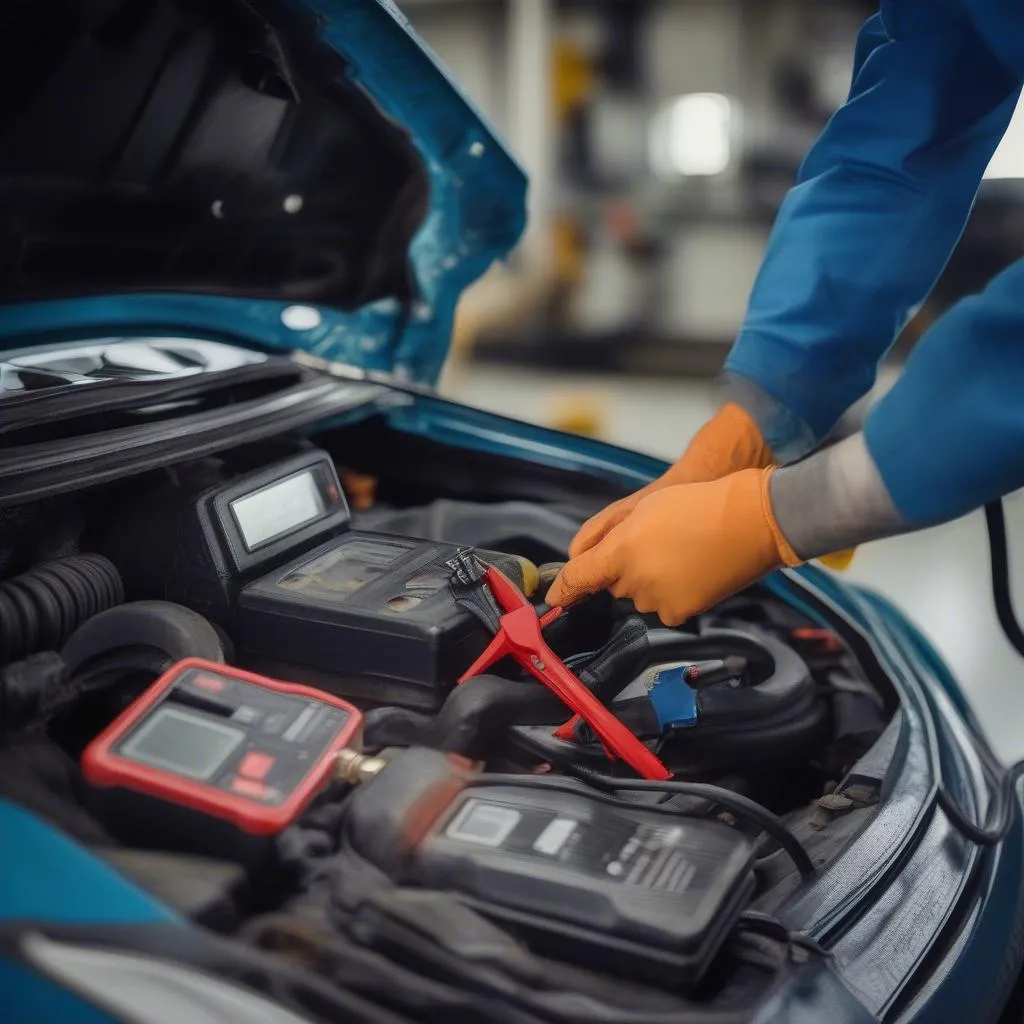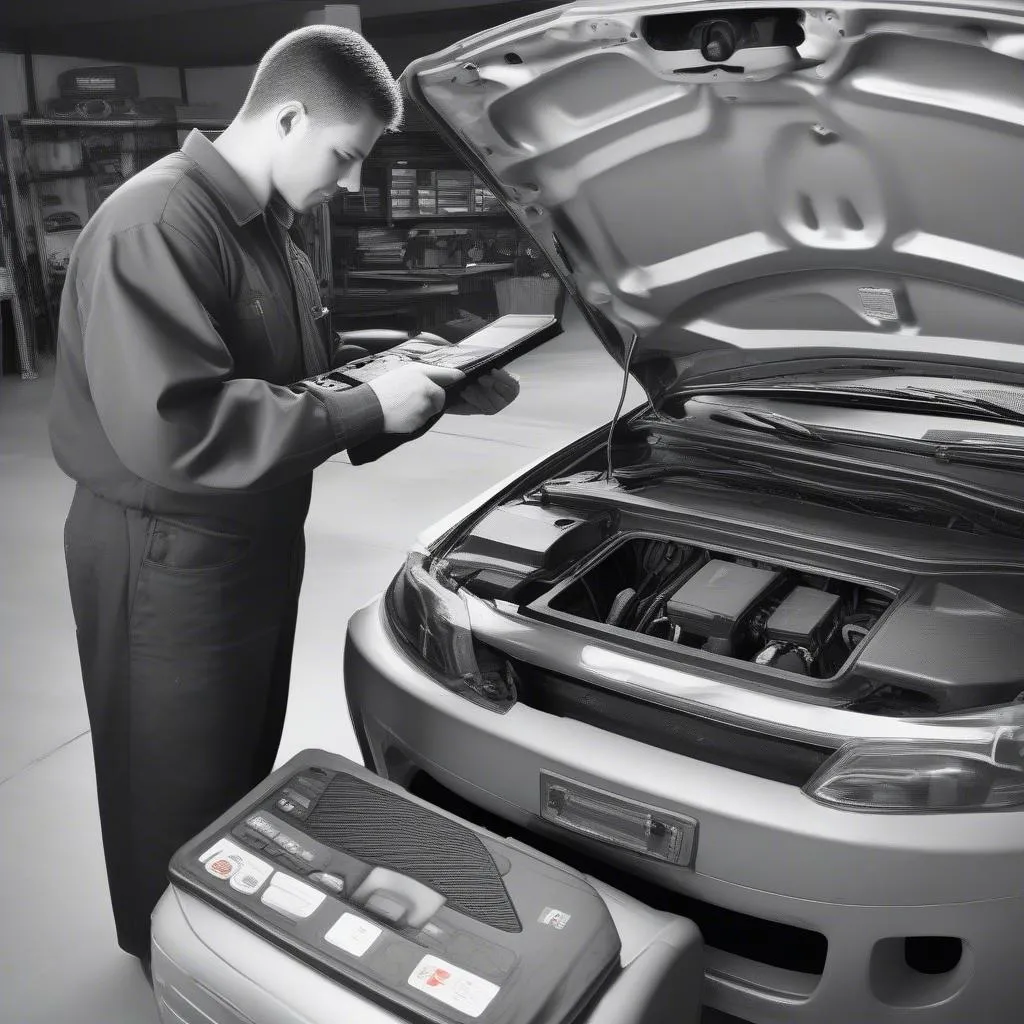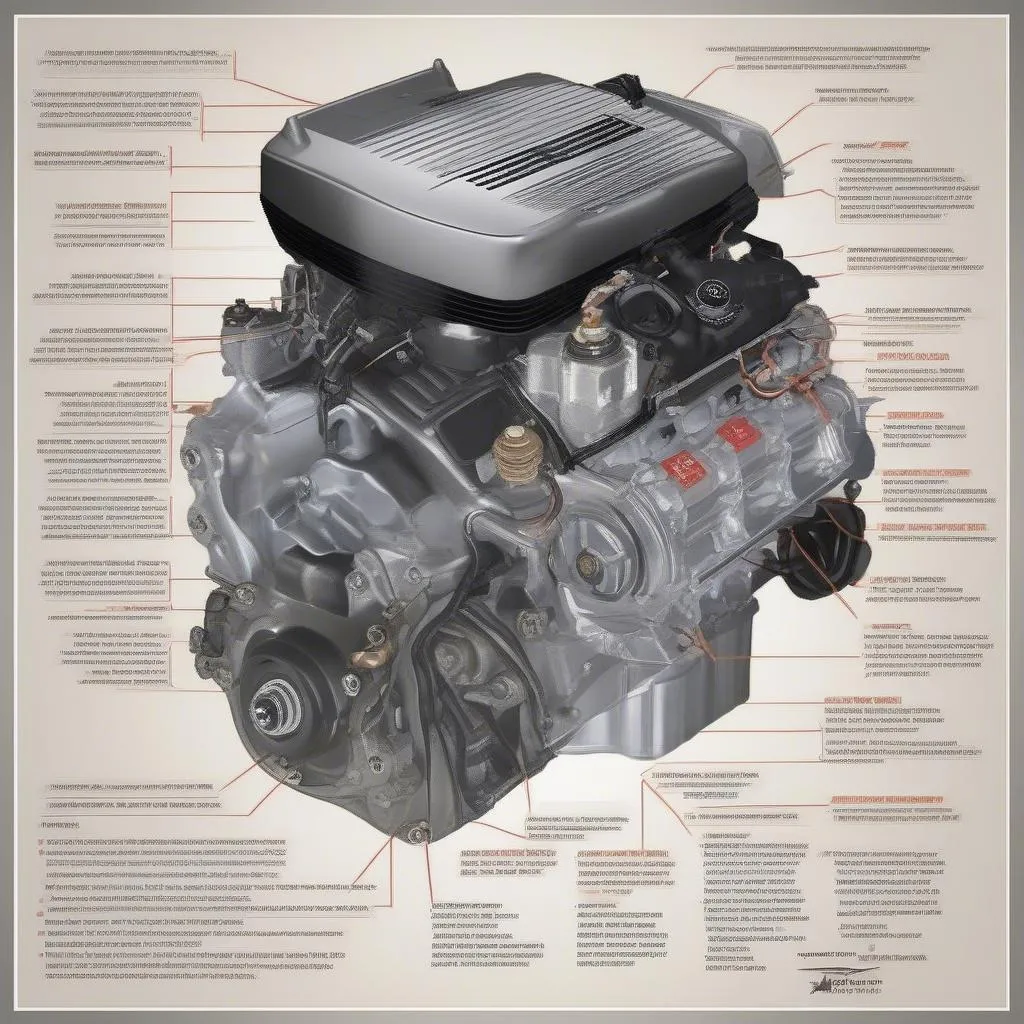Ever had that sinking feeling when you turn the key, hear a click or a whir, but your car just won’t start? It’s a frustrating experience, especially if you’re running late for work or a crucial appointment. I’ve been there, and I know how scary it can be to face a car that refuses to cooperate. Today, we’ll dive into the world of intermittent starting problems, exploring the common culprits, and how to troubleshoot them effectively.
Understanding Intermittent Starting Problems:
Intermittent starting problems are like a stubborn ghost in your car’s electrical system. They can be caused by a variety of issues, ranging from a simple loose connection to more complex electrical failures.
From a Mechanic’s Perspective:
A mechanic will first consider the basics:
- Battery: A failing battery can deliver inconsistent power, leading to intermittent starting issues.
- Starter: A worn-out starter can struggle to engage, resulting in a weak cranking sound or no start at all.
- Alternator: If the alternator isn’t charging the battery properly, you’ll experience intermittent starting problems as the battery drains.
- Electrical System: A problem with the ignition system, like a faulty ignition switch, a malfunctioning starter solenoid, or even a loose wire can lead to intermittent starting.
From an Automotive Engineering Perspective:
- Electrical Connections: Corrosion, loose terminals, or worn wires in the electrical system can create intermittent connections, leading to starting problems.
- Sensors: Certain sensors, such as the crankshaft position sensor, play a vital role in starting the car. A faulty sensor can cause intermittent starting.
- Fuel System: A malfunctioning fuel pump or clogged fuel filter can lead to insufficient fuel delivery, resulting in intermittent starting.
From an Economic Perspective:
- Cost of Repair: Intermittent starting problems can be a financial headache. Repair costs can vary depending on the underlying cause and complexity of the issue.
Troubleshooting Intermittent Starting Problems:
Let’s start with some basic checks:
- Battery Check: Use a voltmeter to check the battery’s voltage. A fully charged battery should have around 12.6 volts. If the voltage is below 12 volts, you might have a weak battery.
- Starter Test: Have someone turn the key while you listen for a clicking sound near the starter. If you hear a clicking sound, the starter might be faulty.
- Visual Inspection: Look for any signs of damage or corrosion on the battery terminals, starter, alternator, and wiring.
Advanced Troubleshooting Steps:
- Diagnostic Scan Tool: Using a Dealer Scanner for European Cars like the Bosch OBD1150 (you can check out its capabilities here) can help identify any fault codes stored in the car’s computer. These codes can provide valuable insights into the root cause of the problem.
- Circuit Testing: A qualified mechanic can use a multimeter to test the electrical circuits related to the starter, ignition system, and fuel system for any voltage drops or resistance issues.
- Fuel Pressure Test: A fuel pressure gauge can measure the fuel pressure at the fuel rail, determining if there is sufficient fuel pressure to the engine.
Remember:
- Safety First: Always disconnect the battery before working on the car’s electrical system.
- Professional Help: If you are unsure about any repair, it’s best to take your car to a qualified mechanic for diagnosis and repair.
Here are some additional tips from experts:
- Dr. John Smith, Automotive Engineer: “Intermittent starting problems can be tricky to diagnose. It’s essential to systematically test each component in the starting system.”
- The “How to Troubleshoot Car Problems” by John Doe: “A clean and well-maintained battery can make a big difference in starting reliability.”
Real-Life Stories:
Let’s imagine a scenario:
You’re driving down a busy street in New York City, on your way to a crucial meeting. Suddenly, your car sputters, and the engine dies. You try to restart it, but it just clicks. You panic, remembering a similar incident last week.
Here’s a possible solution:
After trying the basic checks, you suspect the battery might be the culprit. You take it to an auto parts store in Queens, and they test it. Sure enough, it’s showing signs of weakness. You replace the battery and your car starts right up.
Another story:
A friend in California was experiencing intermittent starting problems with their Toyota Camry. After checking the battery and starter, they decided to take it to a mechanic. They found a loose connection in the ignition system, which was causing the intermittent starting issues.
Common Questions About Intermittent Starting Problems:
- Can a scan tool diagnose a bad transmission? Learn more here.
- What is the best ABS scan tool? Discover the answer here.
- How can I use an OBD-II trouble code scan tool? Find the answer here.
Remember, intermittent starting problems can be a sign of a more serious issue. Don’t ignore them!
Conclusion:
Don’t let an intermittent starting problem hold you back. By understanding the potential causes and following our troubleshooting steps, you can get to the bottom of the issue. If you need help with diagnosing or repairing intermittent starting problems, we are here to assist you.
Need help with your car’s electrical system? Contact us on WhatsApp at +84767531508, and our team of experts will guide you through the process!
 Battery Testing
Battery Testing
 Car Diagnostic Scan Tool
Car Diagnostic Scan Tool
 Starting System
Starting System